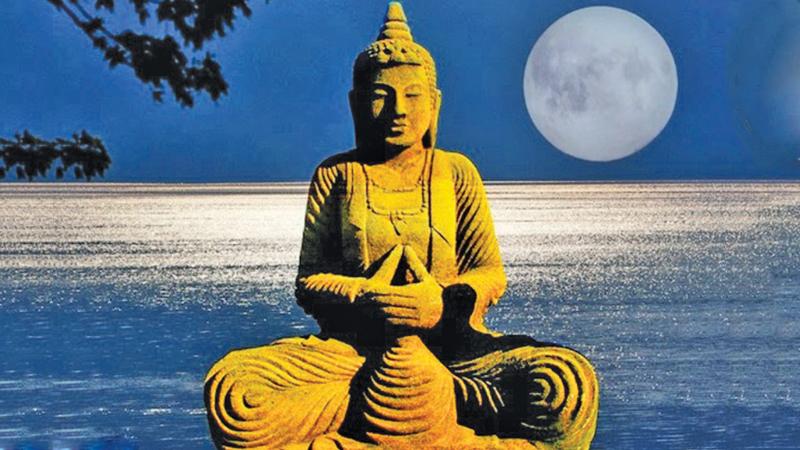
‘Sati’ or mindfulness is a serious Buddhist concept gaining much popularity today among Buddhists and non-Buddhists. The word ‘Sati’ comes from Pali which means ‘mindfulness’ or ‘memory’. However, ‘memory’ is only a loose translation of Sati which is an all-embracing term. In fact, Sati means being aware of what you are doing at the moment. As far as Buddhism is concerned, mindfulness is a meditation.
It is a mental state of minimizing the habitual biases that affect every area of our mundane life. When you practise mindfulness, you will not think of the past, present or future.
Mindfulness is closely associated with mental and physical rest needed in a world full of conflicts. Mindfulness does not mean that you should walk slowly, talk softly, or do other tasks in a leisurely way. Mindfulness demands clear thinking or awareness which is expounded in the ‘SatipattanaSutta’.
There is a difference between mindfulness and awareness. Clear awareness means clear comprehension. This is a necessary prerequisite in all our activities. A monk, for instance, exercises clear awareness when he goes forward and retraces his footsteps.
He has to be aware of what he is doing with his body such as bending and stretching his limbs,wearing his saffron robes and carrying his alms-bowl. In addition, there should be clear awareness when he takes food and drink. He should avoid bodily waste and exercise Sati in walking, standing, sitting, sleeping and when remaining silent.
When you practise such qualities, you will feel the benefits gradually. Apart from physical activities you should be aware of your mental state. A Sati practitioner cannot afford to allow his mind to go astray. As far as possible, internal dialogues should be curtailed. He should avoid thinking of himself thereby eliminating the use of words such as ‘I, me’ or ‘mine.’ He has to train his mind to concentrate on one topic without allowing it to wander.
This is not something easy to perform for a beginner because mind does not stay focused on one topic.
Breathing is perhaps the only activity you do without thinking. Breathing is not affected by our surroundings or age. There is no ‘I, me’ or ‘mine’ in the activity of breathing. When you are aware of this selfless activity called breathing, you will be able to maintain some stillness of the mind. This is the stage when you reach mindfulness.
In other words, mindfulness means our ability to use our mind without positive or negative thoughts. Sati helps us to hold our mind unshaken by extraneous thoughts.
There are many benefits of mindfulness meditation. There seems to be differences between Zen and mindfulness practices.
Although the essence is the same, in Zen you have to keep the mind independent of any thoughts. One day, a student asked his master what he meant by living according to Zen. The master said when he was hungry he ate, when he was tired he slept.
The student was not satisfied with the explanation. He told the master that even others did the same activities.
The master then said, “When you eat, you think of a thousand other things. Similarly, when you sleep, you see frightful dreams.
A Zen master eats when he eats and sleeps when he sleeps without thinking of other things or seeing frightful dreams. This is the kind of awareness we expect from mindfulness as well.
Whether you practise Zen or mindfulness, there are certain common objectives we have to realize. The first is purification of yourself. Second, get rid of sorrow and lamentation.
Third, overcome anger and suffering. Fourth, reach the right knowledge. Finally, you will realize Nirvana.
Right effort plays an important role in the noble eightfold path. It is by one’s own effort that one’s deliverance is achieved. Right effort is the constant mindfulness with regard to body, feelings, thoughts, and mind objects. Right effort and mindfulness lead to right concentration. A concentrated mind acts as a powerful aid to see things as they truly are.
Of the eight factors of the Noble Eightfold Path the first two are grouped under wisdom. The second three are grouped under morality and the last three under concentration. ‘Sila’ includes right speech, right action, right livelihood and right effort. ‘Samadhi’ includes right mindfulness, right concentration and right understanding, and ‘Panna’ includes right thoughts.
In a world torn to pieces, clear awareness and mindfulness will help us to lead a new life free from stress. Your mind then will be a new source of energy not contaminated by craving and lust. Let everybody pracitse mindfulness meaningfully and reap its benefits.
